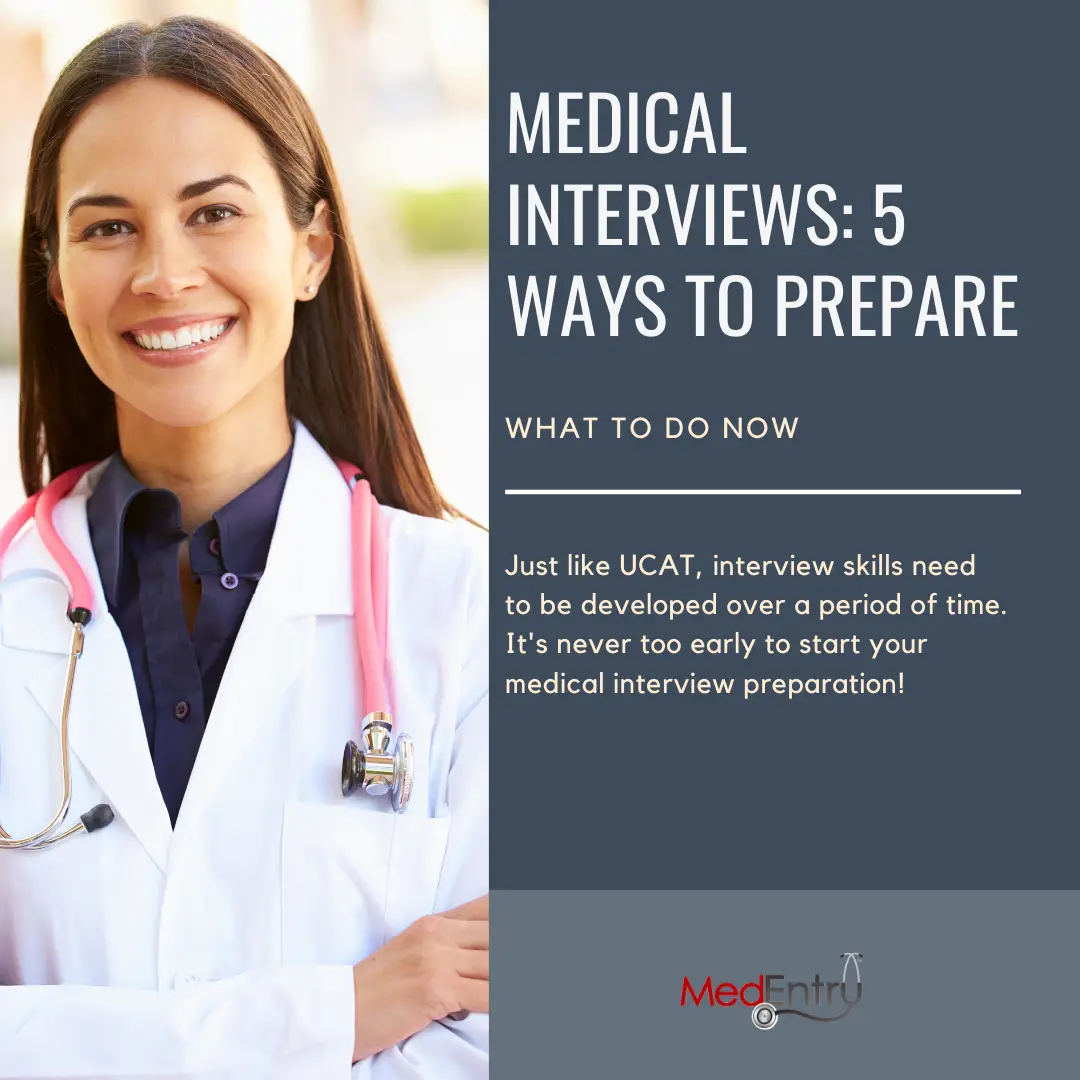Questions About Experience And Background
Medical scribes must have certain training and experience to perform their role effectively. Hiring managers often ask questions related to education and qualifications to determine if you’re the right person for the role. Here are some common questions about experience and background:
-
How many words per minute can you type?
-
How is your typing accuracy?
-
Where did you go to school?
-
Are you familiar with shorthand?
-
What professional development are you interested in pursuing?
-
How is your spelling? Do you struggle to accurately record any medical terminology?
-
Do you have experience working as a medical scribe?
-
What skills do you have that qualify you to work as a medical scribe?
-
Do you have particular training or interest in a medical specialty?
-
What do you hope to learn from your time as a medical scribe?
Related:Medical Scribe Cover Letter Sample
What Sort Of Additional Training Are You Interested In Pursuing In The Medical Field
This question helps you to figure out whether the candidate is committed to being a medical scribe as a career path or just using the job as a stepping stone to another field. Some background in medicine or an interest in the field does make someone a better scribe, but its also important to find someone who demonstrates an interest in a long-term commitment to your agency and will not leave to start medical school or another career in a few short months. What to look for in an answer:
- Interest in medical education or some related background experience
- No immediate plans to begin a new educational endeavor incompatible with the hours needed
- Desire for a long-term commitment to your agency
Example:
I do plan to go to medical school eventually, but currently, my main focus is just working in a medical environment.
Tell Us The Elements Of Documentation Of Scribe Services
The interviewer is testing your knowledge on the key elements that scribes should have. Talk about the main aspects of this field.
Sample Answer
There are several elements of medical scribes. Among them are
i) The name of the scribe and legible signature.
ii) The name of the individual rendering the service
iii) Authentication of the scribe
iv) The name of the patient that received the service from the physician
v) The date and the time when the services were provided to the patient.
These are the main elements that should be present in scribes.
Also Check: Cfo Interview
This Job Is Quite Repetitive What Will Motivate You To Try Hard Every Day
Here you have several options for a really good answer. One is saying that in your view, the job isnt repetitive. Surely, you will sit at a computer and write all day long. But each patient is different, each has their own story, problems, emotions, and since you have passion for healthcare, and perhaps also try to learn something about various diagnosis and treatments and people , you find it extremely interesting.
Another option is saying that you prefer routine and repetitive jobs. Instead of variability you seek routine, but that doesnt mean that you will get satisfied with your work easily, or end up bored quickly. On the contrary, you enjoy the process of trying to improve in everything you do. Maybe you can make an entry in a shorter time, talk to this or that patient in a more appropriate way, and you will continue trying to perfect the way in which you do your job
How Familiar Are You With The Spellings And Pronunciations Of Medical Terminology

This is an important question because professional medical scribes do a better job of notating accurately if they understand the context of what theyre hearing and seeing. You can ask about the candidates past experiences that have taught them about medical terminology and use this question to quiz them about some common terms they should know. Including this question in an interview will help you find a scribe capable of accurate transcription. What to look for in an answer:
- Examples of relevant medical knowledge
- Familiarity with and understanding of most common medical terms
- Prompt and confident responses that demonstrate comfort with medical terminology
Example:
Ive been a medical assistant for a few years, so Im comfortable using medical terminology, especially terms used to discuss infectious diseases and medical procedures.
Read Also: Best System Design Interview Prep
Personal And Professional Development
In our experience, working as scribes stimulated our personal and professional development. This includes growth of organizational skills for managing the demands of medical education, development of effective approaches for mitigating hectic situations, and expansion of our observational skills. Scribes must deal with stressors such as laptop malfunction during an intense patient encounter, multiple time-sensitive demands that can only be met with careful prioritization, and patient overflow when there are innumerable notes to update or finalize. Conditions resembling these force scribes to cultivate equipoise in uncomfortable and uncertain situations, for example, having to write notes from memory because a laptop malfunctioned during an intense, emotionally wrenching encounter with a patient and their family. This ability to fully engage while also tracking key facts and observations becomes part of the skillset that scribes carry with them during subsequent patient interactions in medical school. Completing hundreds of shifts also engenders a mindset of attention to detail, which ultimately prevents medical errors by detecting inconsistencies, oversights, and, on occasion, an order mistakenly entered on the wrong patient.
Interview With Thomas Chilton Proscribe Site Coordinator
Thomas Chilton is a site coordinator with ProScribe and shares entertaining anecdotes about how his experience as a scribe helped him with the professional school application process and getting into med school.
Thomas has been employed with ProScribe, a national medical scribe company featured on the Inc. 5,000 list in 2019 for the second straight year, and for more than five years has been an invaluable asset to their team. This year was his 5th time to apply to medical school. Thomas was accepted to three medical schools and ultimately decided to attend the University of the Incarnate Word Osteopathic School of Medicine in San Antonio, Texas.
Before we begin, its important to understand two things:
You May Like: Questions To Ask A Cfo
How Do You Stay Motivated In This Role
The interviewer wants to know where you get the strength to execute your duties and do well in this job. With all the challenges you may be exposed to in this job, you need a source of motivation which can either be in your place of work or outside the workplace.
Sample Answer
I love what I do. Knowing that my job plays a vital role in quality healthcare provision is all I need to put more effort into it. I have also made it a habit to reflect on my past successes whenever I feel like quitting. I, therefore, have all the motivation I need in this job.
Top Interview Questions For Medical Scribes
Interviews are a valuable part of the hiring process because both parties have the chance to determine if the role is a suitable fit. Medical scribe candidates should prepare ahead of time for common interview questions from hiring managers to have the best interview experience possible. In this article, we provide a series of frequently asked interview questions and several sample answers with explanations.
Related:Everything You Need To Know About Becoming a Medical Scribe
You May Like: Questions To Ask The Cfo In An Interview
Briefly Describe Your Experience
This is where you offer a brief recap of your career. What are some of the positions you have occupied, notable roles you have played, and the accolades you have received in this field? Remember, most of this information is covered in your CV and work resume, and therefore, only mention what you feel will interest the interviewer.
Sample Answer
I celebrated my thirteenth year in healthcare last month. I have worked in both government and private healthcare institutions. I have vast experience in recording and managing patient information and can operate several clinic equipment. I have also worked in 5 countries and got a chance to see the disparity that exists in healthcare. I believe that all these experiences have been gearing me towards this role.
What Are Your Long
Many people applying for hospital scribe positions are hoping to pursue a career in healthcare. Most often, scribes go on to medical school, PA/NP school, or nursing school. However, this does not mean that this is a requirement for working as a scribe. Whatever your answer to this question may be, just ensure that you are confident in and knowledgeable about your choices and that you can relate how working as a medical scribe will help you achieve your goals.
Large medical scribe companies such as ProScribeMD, ScribeAmerica or Scribekick will interview many applicants. This article has prepared you for answering common interview questions. Answering these interview questions with confidence and thoughtful answers will help you land standout from other applicants.
Medical Scribe Course
You May Like: Interview With Cfo
Why Do You Want To Work As A Medical Scribe
The very best answer is the one that makes sense in the context of your professional career and life. For example, you dream of becoming a physician one day. Maybe you plan to submit your application to several med schools during the next application cycle.
To gain some advantage, and to get a better understanding of your future job, youd love to work as a scribe, having a close cooperation with the physician, and an ability to ask them questions and to learn more about your future profession. Such an answer makes a perfect sense, and explains why you apply for the job.
Another example: Youve been working as an administrative assistant for several years, and your typewriting skills really stand out. But you got a bit tired of the routine of your job, and struggle to see a meaningful purpose in the job anymore.
Youd love to work in healthcare, helping people with your work, and with your experience and skills, the job of a scribe is the best match, or perhaps the only position you can realistically get in the field of healthcare. Hence you decided to give it a shot and sent your application.
Anything you say, they should get an impression that you know why you apply for a job of a scribe, that it is your first choice, and not your last option.
Scribing And International Medical Graduates

For physicians who completed third medical training, but now wish to do their residency training in a new country, working as a scribe may have additional value. Scribing will familiarize those physicians with norms of that countrys healthcare system . It will also provide opportunities to demonstrate their abilities and build relationships with clinicians, which in turn may provide opportunities to attain strong recommendation letters for applying to residency programs. So, too being acquainted with the abilities of such scribes can help residency programs identify more well-qualified applicants.
Don’t Miss: Interview Questions For A Cfo
How To Prepare For A Medical Scribe Interview
There is no denying that doctors have a lot of work to do, as well as quite a bit of paperwork to keep up with. The job of medical scribe was created to assist doctors by doing some of the paperwork so that the doctor can focus more on the patient. Working as a medical scribe is an opportunity for people interested in medicine to learn more and to work one-on-one with a doctor.
As with most jobs, the interview step is a critical one in the process of becoming a medical scribe. From why you want the job to what to wear, here are some ways to prepare for a medical scribe interview.
Hospital Scribe Interview Questions
Otherwise known as medical scribes, hospital scribes record medical visits and procedures on the physician’s behalf. They also perform clerical duties, such as preparing referral letters, booking appointments, and managing electronic health record systems.
When interviewing hospital scribes, look for candidates who demonstrate excellent typing, language, and communication skills. Be wary of candidates who lack an understanding of medical terminology and experience with medical record software.
- Completely free trial, no card required.
- Reach over 250 million candidates.
Recommended Reading: Interview Attire Women
How Do You Handle Stress
Medical scribes might work with patients facing pain or confusion or in high-pressure, time-sensitive situations, all of which can increase stress. Hiring managers will want to be sure you’re aware of the possible stressors of the position and know how to handle these situations should they arise.
Example:”I know that there can be moments of high stress when working as a medical scribe. Since I’ve worked in the position before, I feel confident I can manage stressful situations with a few coping strategies. First, I use deep breathing to slow my heart rate and help me focus on the task at hand. I ask for assistance when I need it to ensure I’m getting all the necessary information recorded. Finally, I stay aware of my surroundings so that if an emergency arises I can quickly get myself and my equipment out of the way to support patient care.”
Imagine That A Patient Accuses You Of A Bad Service What Will You Do
This question is an opportunity to show your empathy with the patients, your emotional intelligence, and also your desire to deliver an outstanding service to each and every patient.
Say that you will listen to their words carefully, because the feedback you get from the patients is superbly important to you. In no way will you argue with them. On the contrary, you will try yo understand what went wrong, and whether you made a mistake, because regardless of how hard you try, you are just a human being, and you can make a mistake.
If you identify that you made a mistake, you will apologize. And if the problem is that they misunderstood something, you explain it another time, in a calm voice. It may also happen that they complain simply because their condition is miserable. You have an understanding for their feelings , and hence you wont take their words personally.
Youll try your best, and you will eventually move on to the next patient, without dwelling on the negative experience you had with one of the patients.
Also Check: System Design Interview Prep
Have You Ever Gone Above And Beyond In Patient Care
The interviewer wants an experience where you stepped out of your regular job description and made a positive impact in your place for work. This question is, therefore, assessing your commitment to this job. Give an experience where you helped a patient or family.
Sample Answer
I love seeing patients get better and reunite with their families. I once decided to volunteer and mentor kids suffering from cancer. I even helped fundraise for several organizations that were creating awareness for such children.
What Has Being A Scribe Taught You About The Healthcare Industry
Scribing has taught me that healthcare is very complicated and nuanced. Things are rarely as straightforward as they seem. There are a lot of social and economic factors that influence healthcare. I worked in an operating room and saw a very process-driven form of medicine before I started working with ProScribe. A patient comes in with X, you give them Y drug or perform Y surgery, and they go home and feel better. In the ER, you see the outside influences because you see it raw. Its not filtered. You get to see what medicine is really like.
You May Like: Top 10 Behavioral Questions
What Are Some Of The Questions You Ask When Intaking A New Patient
This is an operational question that seeks to understand how you go about your work. The interviewer must ensure that you know the right questions to ask and how to frame them to obtain the relevant information from the patients. Your questions should be geared towards finding more about the patients background.
Sample Answer
I first ask the patient their reasons for visiting the clinic. Most of the following questions are related to the visit. I will enquire about their names, date of birth, and how they feel. I also ask about any previous surgeries, conditions, or family history.
What Are 3 Strengths You Have 3 Weaknesses

This may feel like an awkward question to answer. Listing your own strengths may seem braggy and listing your weaknesses may feel deprecating. This is a difficult question for many people, but if you take some time to prepare an answer, you will feel more comfortable when faced with it. The strengths you list do not necessarily have to be directly relevant to medicine or scribing, but try to relate them if you can. When trying to think of strengths, think back to the skills you listed on your resume. Regarding weaknesses, you may have heard the advice to list strengths disguised as weaknesses . This is not always a good idea, as the interviewer will easily be able to tell. It is better to be honest about a few of your small weaknesses and explain how you are working on overcoming them. Everyone has weaknesses the important thing is that you recognize them and try to change.
Don’t Miss: Interview Attire Womens